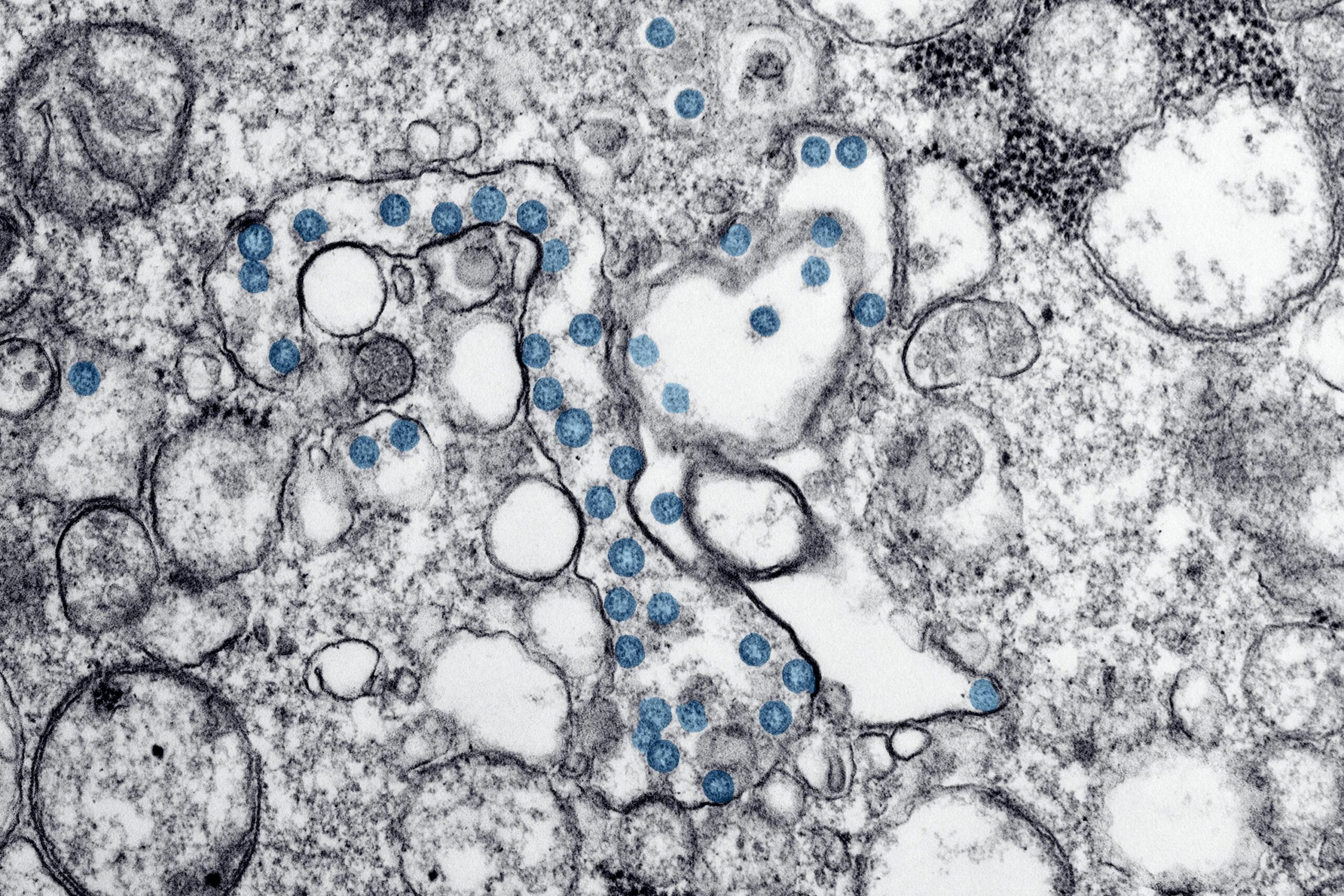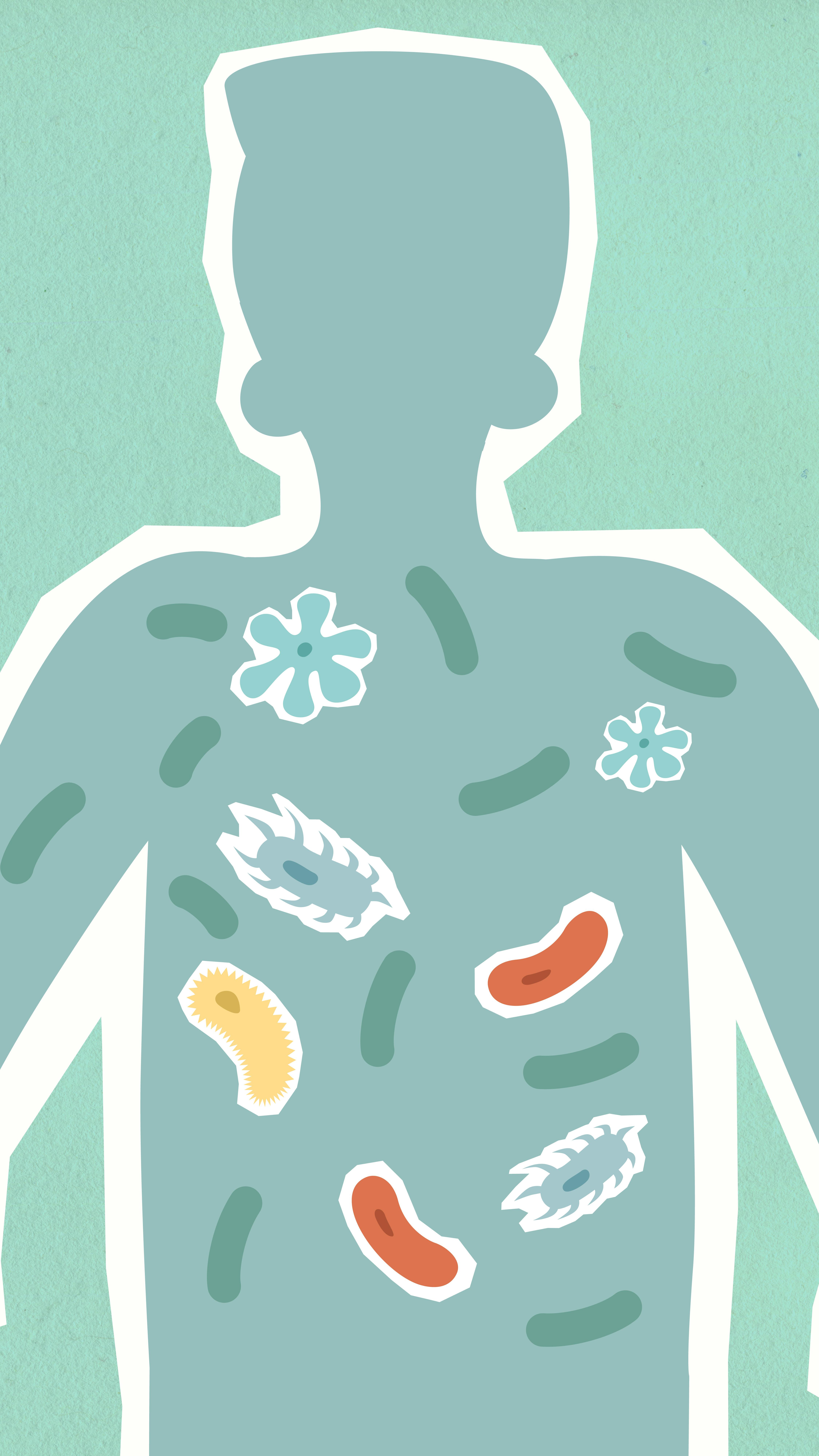The fields of science and medicine have yet to find some part or process of the human body that isn’t affected (usually adversely) by SARS-CoV-2, the virus that causes COVID-19. We’re also learning that the microbiome of the gut influences the wellbeing of virtually every part and process of the human body. Some sort of still-mysterious biochemical composition (sometimes the word “balance” is applied) of the gut microbiome makes its influence favorable or unfavorable.
One new study, at the New York University’s Grossman School of Medicine reports that infection with COVID-19 can encourage dangerous gut microbes to thrive. It is well-known that in recent decades, excessive or inappropriate use of antibiotics to fight infections with disease-causing bacteria has eliminated more-vulnerable bacterial species. Remaining are bacterial species which are more resistant to antibiotics. Gut bacterial ratios which deviate from ratios found in healthier individuals have also been linked to more severe infections with COVID-19.
Previously, it has been unclear if illness was caused by COVID-19 disrupting the gut microbiome, versus a disrupted microbiome which is more vulnerable to the virus. The study reported here indicates that the virus disrupting the microbiome is the more common source of pathology.
NYU investigators also discovered that the viral infection allowed antibiotic-resistant bacteria to enter the bloodstream. The ill patients were then at greater risk for life-threatening secondary infections with antibiotic-resistant bacterial species.
The investigation involved 96 men and women hospitalized with COVID-19 in 2020 in New York City and in New Haven, Conn. Results showed that most of the patients had low gut microbiome diversity; the microbiome of 25 percent of the participants had a single type of bacteria which was dominant. Several microbes known to be antibiotic-resistant were found in numbers greater than expected, possibly due to antibiotic use early in the pandemic.
“Our findings suggest that coronavirus infection directly interferes with the healthy balance of microbes in the gut, further endangering patients in the process,” says microbiologist Ken Cadwell, PhD. “Now that we have uncovered the source of this bacterial imbalance, physicians can better identify those coronavirus patients most at risk for a secondary bloodstream infection,” Cadwell added, in a statement.
“Our results highlight how the gut microbiome and different parts of the body’s immune system are closely interconnected,” says Jonas Schluter, PhD, assistant professor in the Department of Microbiology at NYU and a member of its Institute for Systems Genetics, in a statement. “An infection in one [part of the immune system] can lead to major disruptions in the others.” Schluter notes that the investigation, by its nature, did not account for all factors that may have contributed to the disruption of the patients’ gut microbiome, since the patients’ treatments varied prior to their participation in this study.
The report is published in the journal Nature Communications.












The U.S. and it’s people are already world known for low microbiome diversity, it’s partially, maybe more wholly why we are also #1 for auto-immunity. It’s no secret either that U.S. life spans are currently dropping vs. Asia/Euro still on the increase.